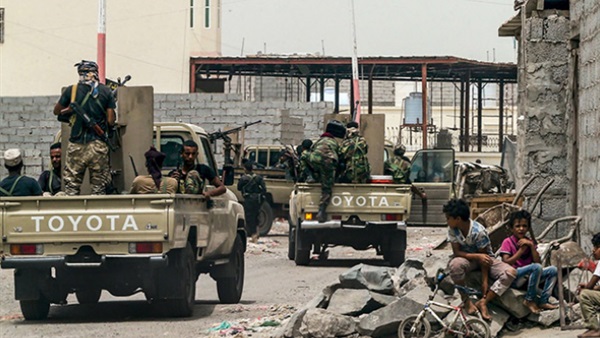Yemeni experts to the Reference: Al-Qaeda exploiting Yemen’s security vacuum to increase influence, attacks

A new attack was launched by al-Qaeda in Yemen, killing two
officers and wounding three others, in the Mudiya district in eastern Abyan
Governorate.
The attack, which took place on Tuesday, February 7, is the
second during the same week, as the terrorist organization claimed
responsibility for an attack on Sunday, February 5, targeting a patrol of the
8th Thunderbolt Brigade in Wadi Omran, Abyan, leaving three wounded among the
soldiers.
During the month of January, the southern forces were
subjected to nearly four terrorist attacks launched by al-Qaeda, most of them
in the Wadi al-Mawt (Death Valley) in Abyan Governorate, which resulted in the
death and injury of 24 soldiers.
In mid-December 2022, the same governorate witnessed nearly
11 attacks with explosive devices, most of which took place in the towns of
Wadi Omran, Al-Mahfad and Mudiya in eastern Abyan, which resulted in dozens of
deaths and injuries.
Strong readiness
Al-Qaeda appears to have recently been able to arrange its
targets well, in addition to its strategic and security readiness, according to
Yemeni political analyst Saad Eddin El-Borai.
Borai explained, in a special statement to the Reference,
that the repeated attacks in Yemen lately indicate the high readiness of the
terrorist organization and that it has drawn up prearranged plans, as it has
carried out multiple attacks in different places, demonstrating its ability to
move and its material and human capabilities.
He pointed out that al-Qaeda has recently succeeded in
recruiting a number of elements, re-forming its ranks and choosing new leaders.
Houthi-al-Qaeda cooperation
Last year witnessed close and strong cooperation between
al-Qaeda and the Houthi militia in Yemen. This cooperation was hidden at the
beginning, but in mid-2022, it appeared in the open, after the Houthis sought
the help of some al-Qaeda leaders in political work, including Aref Saleh Ali
Mujali, a leader in al-Qaeda, who was appointed deputy governor of Sanaa.
Mujali, also known as Abu Laith Al-Sana'ani, is considered
one of the most dangerous leaders of the terrorist organization in Yemen,
having participated in many terrorist attacks since 2002.
During the year 2021, the Houthi militia released about 225
terrorist elements affiliated with al-Qaeda as a form of support for the
terrorist organization.
Spheres of influence
Al-Qaeda has been present in various areas in Yemen ever
since the country became engulfed in a state of security chaos in 2011.
According to a news report published by the Yemeni website Al-Asima Online,
al-Qaeda has taken over Abyan Governorate, where the organization announced the
establishment of its first Islamic emirate in May 2011. It is considered one of
the most important centers of gravity for al-Qaeda.
In addition, al-Qaeda controls areas of the oil-rich
governorate of Shabwa, where it declared its second emirate in Azzan, and it
moves about freely there, taking advantage of the lack of security. As for the
rest of the governorates, especially in the south, the organization is present
in the form of sleeper cells.
Significant threat
Yemeni political analyst Mohamed al-Hamiri said that
al-Qaeda has become a significant threat to the Yemeni government, which is
fighting on more than one front.
Hamiri confirmed in a statement to the Reference that
al-Qaeda took advantage of the security vacuums and the Yemeni army's
preoccupation with fighting the Houthis to work to establish new states and
expand its influence through terrorist attacks, as well as respond to the
security operations of the legitimate forces.
He explained that the elimination of al-Qaeda requires the
existence of a local and regional political environment through which measures
can be taken that enable the legitimate government to extend its influence,
unify the national army with a good rearmament, train soldiers on the
importance of defending the homeland, and unify all political forces in Yemen,
because any terrorist organization becomes more active in a state of political
isolation and security instability.







